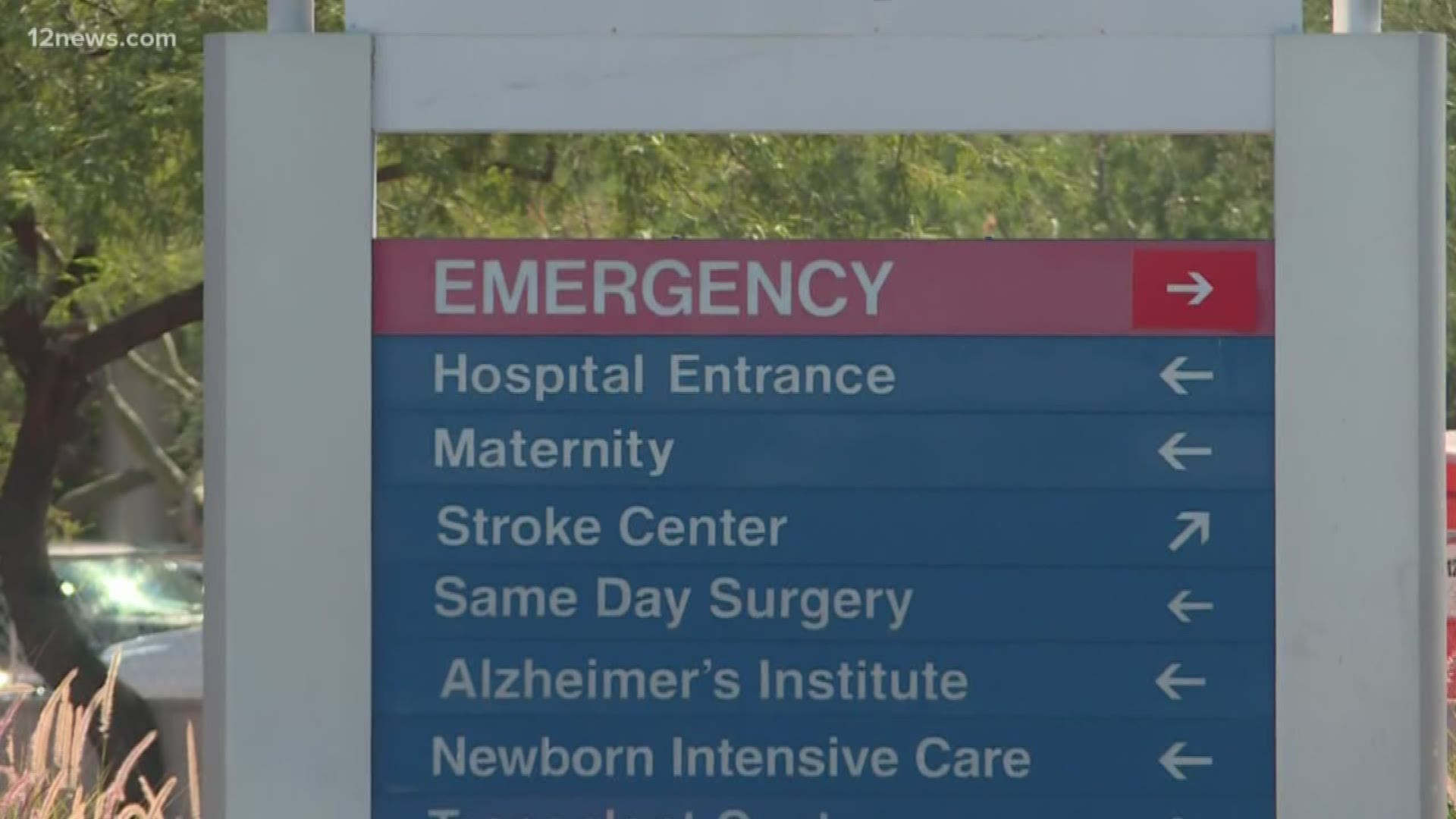PHOENIX — With coronavirus cases projected to peak this month and next, Arizona's hospitals are girding for a worst-case scenario: decisions about who will live and who will die.
A 12-page letter this week from the hospitals' trade group, the Arizona Hospital and Healthcare Association, calls on state Health Services Director Dr. Cara Christ to suspend more than five dozen hospital regulations.
The requested rule changes that would affect everything from how hospitals hire staff to how they treat patients, according to the letter obtained by 12 News.
Given the scarcity of life-saving equipment, the letter says, hospitals are seeking legal protection for "hard choices" they might have to make "in the "hope of saving the most patients."
The targeted regulations "impede the ability of hospitals to implement their emergency plans and provide needed services to patients," the hospitals' letter says.
The suspension of regulations would be retroactive to March 11, when Gov. Doug Ducey declared a state of emergency, and last until the emergency ends.
The state Department of Health Services has not responded to a request for comment.
Christ has said the state needs to double the number of hospital beds and intensive care units statewide, and more than quadruple the number of ventilators to deal with the projected spike in cases and deaths.
It's a race against time. The state's coronavirus cases are projected to surge in April, with hospitalizations peaking in May.
"These are crisis times and any request to relax rules are simply meant to free our hand to respond best to the crisis as we see fit," said Dr. Nick Vasquez, an emergency physician in the Valley for 15 years.
"In facing this pandemic that's a very smart thing for health care to do right now."
I asked Vasquez to review the hospitals' requests.
The hospitals want greater freedom to hire staff and treat patients.
But some changes to patients' rights regulations might raise alarms.
"No one in health care got into the business to be judge and jury," Vasquez said. "We got into the business because we care about people. We're just trying to do our level best in the face of a crisis."
One waiver request from the hospitals focuses on potential legal repercussions for "hard choices":
"In situations in which scarce equipment, beds or personnel must be allocated among COVID-19 patients and hard choices must be made to save patients, such choices will not provide grounds to allege that a patient has been subject to abuse or neglect."
"All of us are thinking about how would we make these decisions if we had to," Vasquez said.
"How would we go about dealing with more people who need ventilators than there are ventilators? It's better to have the conversation now than to wait 'til the last minute."
When cases surge, the hospitals want protection from discrimination complaints if they have to decide which patients will be treated with "scarce equipment":
"We request assurance that, if circumstances require the use of tools to prioritize the allocation of scarce equipment, personnel and beds among COVID-19 patients the (the Department of Health Services) will not consider such prioritization to constitute discrimination."
The hospitals are also seeking a waiver of a patient's right to have a voice in health care decisions. It could be "impossible" to give them that voice, the letter says:
"The requirement to allow COVID-19 patients or their representatives to participate in the development of decisions concerning treatment, ... may be impossible to accommodate during surge periods."
The message there, Vasquez says, is everyone should prepare a living will now, so their wishes are on paper.
"It's a really good moment right now for us to have the conversation as a nation," he said.
"It's time to have a conversation about your wishes, should the worst happen, not at the last second, but when you're fully capable and able to decide for yourself."

